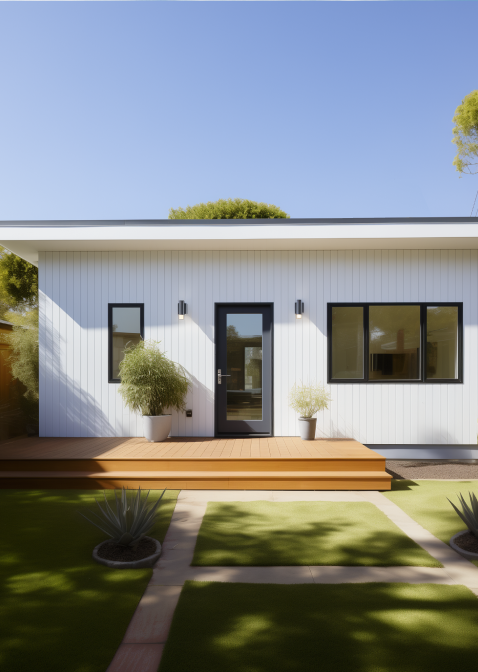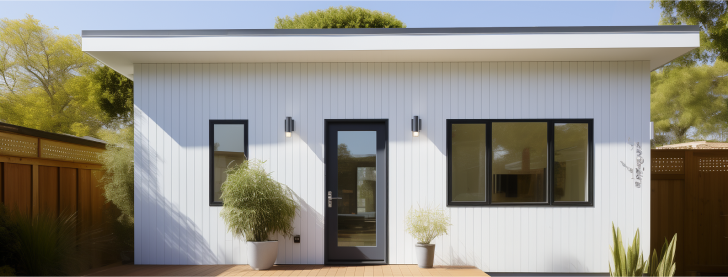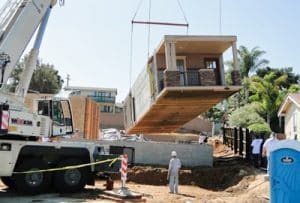
When it comes to modern construction, prefabricated or prefab housing units are becoming increasingly popular. Prefab housing involves constructing building components off-site in a factory, then transporting them to the building site for assembly. There are different types of prefab units available, including modular and panelized units.
In this blog post, we will explore the differences between these two types of prefab units and help you decide which one may be best for your next building project.
Modular Prefab Units
Modular prefab units consist of pre-built sections, or modules, that are assembled on-site to form a complete structure. These modules are built off-site in a factory setting, then transported to the building site where they are stacked and assembled like building blocks.
Modular Prefab Unit Advantages
Advantages of Modular Prefab Units include:
- Reduced construction time: Because the modules are built off-site, construction time on-site can be significantly reduced.
- Cost-effective: Modular units are built in a factory setting, which reduces the cost of labor and materials.
- Consistent quality: Building modules in a controlled factory environment ensures consistency and quality of each unit.
- Environmentally friendly: Modular prefab units can be designed for energy efficiency, which reduces waste and energy consumption.
Modular Prefab Unit Disadvantages
Disadvantages of Modular Prefab Units include:
- Limited design options: Modular units are designed to be stackable, which can limit design options and creativity.
- Transportation limitations: The size of the modules is limited by transportation regulations, which can limit the size of the structure.
- Assembly challenges: The on-site assembly of the modules can be challenging and requires a skilled team to ensure proper installation.
Overall, modular prefab units are an excellent option for those looking for a cost-effective and efficient way to build a structure. However, the limited design options and transportation limitations may not be suitable for everyone’s building needs.
Panelized Prefab Units
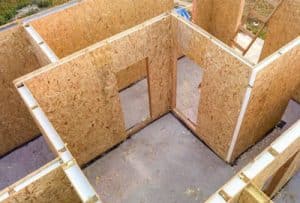
Panelized prefab units involve constructing building components in a factory, but these components are in the form of panels that are assembled on-site. These panels are typically larger than the modules used in modular prefab units and can be customized to meet specific design requirements.
Panelized Prefab Unit Advantages
Advantages of Panelized Prefab Units include:
- Design flexibility: Panelized units offer more design flexibility than modular units, as the panels can be customized to fit a variety of design needs.
- Faster construction: Like modular units, panelized units can be built quickly because most of the construction occurs in a factory.
- Easy assembly: The assembly of the panels on-site is easier and requires less specialized labor than modular units.
- High-quality materials: Panelized units are constructed with high-quality materials to ensure durability and longevity.
Panelized Prefab Unit Disadvantages
Disadvantages of Panelized Prefab Units include:
- Limited transportation distance: Because panelized units are larger than modules, transportation can be more difficult and expensive.
- Higher costs: Panelized units can be more expensive than modular units due to the increased flexibility in design and materials used.
- Assembly challenges: While the assembly of the panels is easier than modular units, it still requires a skilled team to ensure proper installation.
Overall, panelized prefab units offer more design flexibility than modular units and can be constructed quickly and with high-quality materials. However, the transportation distance and higher costs may not be suitable for everyone’s building needs.
Modular vs. Panelized Prefab units
Modular and panelized prefab units have their unique advantages and disadvantages, and choosing the right one for your building project depends on several factors. Here are the similarities between them:
- Both of them are built in a factory environment away from the actual location;
- Both save money on energy costs and have a low impact on the environment; Both can be constructed rapidly and using high-quality materials;
Here are the differences between them:
- Design flexibility: Panelized units offer more design flexibility than modular units because panels can be customized to fit specific design requirements.
- Transportation: Modular units are typically smaller and easier to transport, while panelized units can be larger and more difficult to transport.
- Assembly: The assembly process for panelized units is easier and requires less specialized labor than modular units, but modular units are more standardized and require less on-site construction.
- Cost: Panelized units can be more expensive than modular units due to the increased design flexibility and materials used.
What prefab unit is best for me?
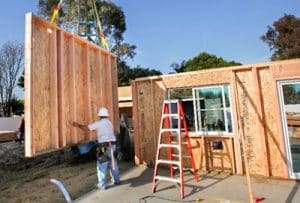
There is no one-fits-all answer to this question, however, here’s how to choose:
- If you’re looking for a small, cost-effective structure with a limited design, modular prefab units may be the better option.
- If you’re looking for a larger, more customizable structure, panelized prefab units may be the better option.
- If transportation distance is a concern, modular prefab units may be the better option.
Ultimately, the choice between modular and panelized prefab units comes down to the specific needs of your building project. Consider factors such as design flexibility, transportation, assembly, and cost when deciding which option is best for you.
Prefab unit Takeaway
Modular and panelized prefab units offer a variety of advantages when building a home. Both methods of construction are cost-effective, require minimal maintenance, are eco-friendly, and provide a high level of customization. Modular homes tend to take less time to construct while panelized prefab homes allow for more architectural flexibility due to their ability to be altered on-site. Ultimately, it comes down to the individual’s needs and budget when deciding between these two methods of prefabrication.



